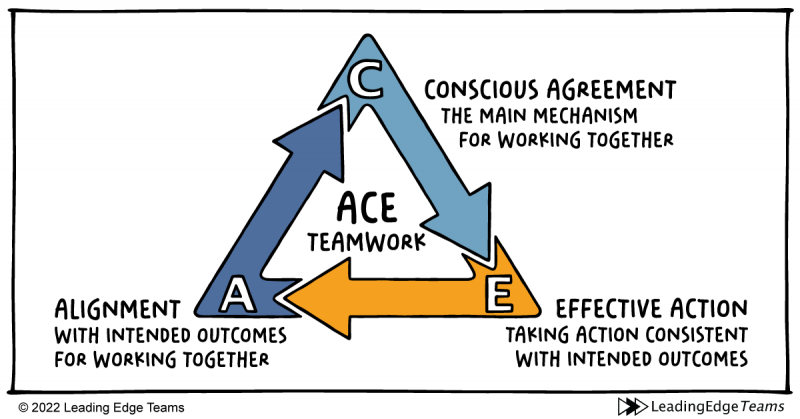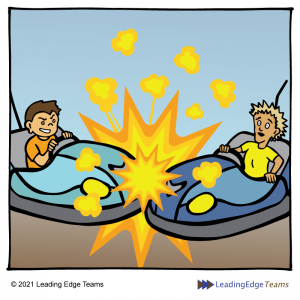Tension has an upside and a downside—both impact your business success
How do you manage your business life tension?
That may feel like the million dollar question. TENSION is a little word with a huge impact. On the upside, it fills us with feelings of anticipation, surprise and expectation. It helps us achieve goals and perform at a high level. A certain amount of tension is motivating, exciting and good.
In contrast, the downside of TENSION is defined as hostility or unrest between two people or a group of people. Tension occurs due to challenging situations or actions that cause people to react negatively and aim their agitation toward one another. Things can go from a problematic and tense situation to become a personal confrontation. Whenever this escalated tension occurs, it becomes personal, and it causes anxiety, pressure and emotional strain. It’s frustrating and draining! You need to manage business tension between people or it will impact your bottom line.
Since you're human, you are familiar with both types of tension. Things do go wrong in business, mistakes happen, errors in judgment cause poor business results. Simply stated, humans mess up. All of us experience TENSION as we interact with each other during such times. Reading this, you are probably remembering just such a time. Things do get tense!
For most people, they have a strong urge to do something right away with business life tension. So the big question is, “What do you do?” How do you interact with people on your team? How do you relate with others when something not good, maybe even bad, has happened and you're in a space of feeling like, “Oh no, that is terrible!”
I will break this down into the two types of tension:
The FIRST TYPE OF TENSION results from a disappointing business outcome.
The situation (whatever it might be) that you planned to happen did not happen! Imagine it in basketball, that your teammate passes the ball and it gets stolen. That is not what you wanted.
So when that happens, you feel like your teammate made a mistake. The ball didn't get successfully passed to you. You react with tension, because you think the person threw it away, didn’t do it right and let the other team have it. You now have the added tension of, well, wait a minute, the play didn’t go as planned, and now the game isn't going well either.
As a result, the first kind of human tension is felt. The tension of: OUR ACTIONS DID NOT GET US WHAT WE WANTED TO MOVE US TO THE OUTCOME/RESULT WE NEEDED.
The SECOND TYPE OF TENSION influences the relationship between people.
This is the kind of tension, I'll just say it… is a big problem area in business and in life. This is the kind of tension where not only are you unhappy about not getting the outcome you counted on, you are enduring the negative consequences. Think of a situation where you felt this—your tension increased as you thought about the disappointing outcome. Things didn’t turn out as planned. Most humans, in this SECOND TYPE OF TENSION begin to assign blame and fault, thinking the other person should have done something differently.
As TENSION increases, the human reaction is to no longer perceive the other person with confidence. Thoughts such as, That person is not quite good enough… They made a big mistake and doubt creeps in. Are they going to throw the ball away to the other team again?
Now, the relationship is no longer secure. Suddenly, the personal interaction includes TENSION, along with words of criticism, blame, fault-finding. Often, it escalates into an argument and both get defensive. What's happening at that moment is that the TENSION has gone away from focusing on the disappointing outcome and has now escalated into two people not being secure and psychologically safe with one other. So now they've got a relationship problem on top of TENSION from the original disappointing outcome. Are you following me?
Unfortunately, the once mutually desired outcome is long forgotten. The relationship between each other is the immediate threat and dominates their focus. The TENSION felt with the other person consumes both people’s thoughts and energy, halting productivity.
Think about yourself in a work situation that might have gone badly. As TENSION leads to argument, your mind likely went into overdrive, and you constantly thought things like, “Now what? How can I work with this person? How am I going to get back to a good place with this person…” and on and on!
WHAT IS THE SOLUTION TO BUSINESS LIFE TENSION?
First, remember, business is a game of achieving goals and big outcomes. Sometimes plans work and sometimes they don’t. And when something doesn't go according to plan, whether it's a mistake or whether it was a challenge due to external forces, it doesn't make any difference.
Your focus is not a desperate, “What now?”
Instead, your focus is, “What do we do next, and what do we do differently to get the business result we need?”
For sure, there is TENSION when you are striving towards a goal, but it needs to be there. Everybody has to work with reality. By the same token, giving in to feelings of anger, hurt, fear, any of that stuff, is exhausting and keeps the energy and focus on the tension in the relationship.
It’s a big handicap when people, or a team, have psychological person-to-person differences to overcome. Preferably, from this blog, you give thought to the difference in the types of TENSION.
Experience the good TENSION that comes from your focused commitment to working together to build each person’s skills on the team. This positions each team member to do what is expected and needed for achieving a good business outcome.
Don’t make it personal!
TAKE-AWAYS!
- Change includes dealing with performance issues that are outcome focused.
- Shift roles or make changes utilizing the best combination of skill sets/people to achieve the goals and ultimate outcome.
- Basketball is a great metaphor for the game of business. You want the outcome, so on your team go for the win tension, but not the relationship tension.
- Avoid personal tension. Be supportive of each other. (Even when somebody messes up, or something doesn't work.) Show you are a safe team player.
- Remember defensiveness is the reverse of blame. Neither are good.
- Defensiveness basically says, “I'm all good; I'm not the one at fault, and if I'm not the one at fault, it must be you.”
- In a team relationship, feeling psychologically safe is essential.
- Psychologically safe and secure believes that you won't be thrown under the bus by the other person. Your team has your back.
- Commit to trusting each other; play the game focused on the goals and the ultimate outcome.
Lastly, outcome focused tension is needed, but not the personal, psychological tension that is the result of humans pointing fingers of blame and criticism!
Hope this TENSION awareness helps your team!
Next, click here to learn how the PAUSE helps relieve tension.
This is Leadership!
Annie










